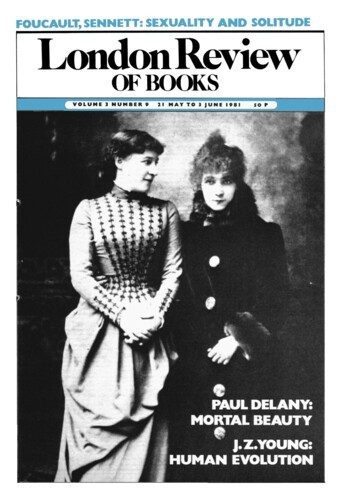Feral Children
Michael Morgan, 21 May 1981
The Forbidden Experiment is about cases of children reared in isolation from other human beings and, in particular, about the celebrated ‘Wild Boy of Aveyron’, who emerged from the woods near Saint-Sernin in Southern France in 1800. What make cases of social deprivation of this kind so fascinating are the obvious questions they raise about the determinants of human nature. (See, for example, Seamus Heaney’s poem ‘Bye Child’, about the plight of a neglected boy reared in a henhouse.) The enfant sauvage himself was 11 to 12 years old when caught, and it was known from earlier sightings that he had been living by himself in the mountains and forests, summer and winter. Unfortunately, it was not known, either then or now, how long he had been living in this state, which greatly diminishes the scientific value of the observations that were subsequently carried out on him. What is certain is that he had many disagreeable animal habits and, most important of all, he had no human speech. News of the boy spread to Paris and led to intense interest in the progress of his education, which posed many questions that were central to the concerns of philosophers and scientists of the time, locked in the traditional debate between nativists, who believed that much of human nature was fixed before birth, and the empiricist followers of Locke and Condillac, who believed that people’s behaviour was mainly determined by their education and experience. Was the boy so degraded because he had lacked human contact? Could he by patient re-education be made to join the human family? Would he have innate ideas of justice and so on, and, if not, could he be taught them?

